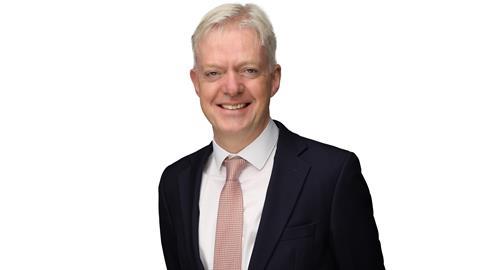I’ve always had a mathematical brain. Ever since I was young, I’ve enjoyed the process of applying a set of rules to a set of facts to get the correct outcome. I studied engineering at Oxford and subsequently sought a profession which would require the application of intelligence and brain power. I knew I enjoyed mental challenges, loved learning new things and since I welcomed the prospect of a further two years’ study, I decided to become a lawyer.
I trained at what is now Hogan Lovells with seats in intellectual property, real estate, banking litigation and corporate. I realised during my real estate seat that I liked dealing with tangible assets – ‘something you can bump your toe on’, as some people say – rather than abstract numbers and pieces of paper alone.
I’ve also long been fascinated by geography and how buildings and real estate reveal the history of a place. The way that land has been used, is being used and will be used also reflects what is happening in the culture, the economy and in people’s lives.
I qualified into Hogan Lovells’ real estate team in 1998, spent nearly 25 years there and was a partner for 11. It was a great time. I learnt and grew a lot both personally and professionally. There were many highlights: big deals, great colleagues and recognition in the market and by the major directories. Yet after 25 years, the inevitable demands and pressures of working for a big-name international firm began to take their toll. It was time to make some adjustments and the winds of change blew in.
Although perhaps an unusual career move to some, I left law to pursue an MSc in Business Analytics at UCL. It was a little daunting to make such a shift after so many years in the profession. But the course came highly recommended by a number of contacts both inside and outside of law, and its mathematic, analytic content had an obvious appeal.
My real estate law experience had also shown me that the way things are done in many firms is often clunky. For example, lots of lengthy asset reports which no one has time to read. A different, more analytical approach can make things more efficient and cost effective for everyone.
'If you’re thinking of doing something different or broadening your horizons, it’s a journey well worth taking'
During my masters we studied marketing and operations analytics, some programming and statistics, and machine-learning and risk analysis. I used much of my mathematical background from my A-levels and first degree, but also learned a lot about how technology can (and cannot) be used to make business work better, and to achieve things which have not previously been possible.
Being a full-time student again was great. Most other students were in their 20s and from all corners of the world. It was fascinating to work with them and see how they think and interact. I was also touched by how welcoming they were to me, even though I was old enough to be their father, and it was great that so many of them were keen to learn from me and my ‘real-world’ experience.
It wasn’t my intention to return to the law after completing my MSc. I didn’t know where it would lead and didn’t have a fixed plan. I was delighted to be invited to co-found a fintech start-up, FF Technology, which is launching credit and factoring platforms in Colombia. I now do it part-time alongside working for Davitt Jones Bould.
DJB is very much a non-traditional firm, progressive in its outlook and open to fresh ideas and new ways of doing things. The firm’s lawyers have been working at home as standard for more than 15 years, are actively encouraged to engage with their own personal and professional interests, and are relieved of business development and supervision responsibilities by a professional management team so we can focus on what we do best.
I’m happy to find myself practising law in a much more flexible way while continuing to feed my enthusiasm for emerging technologies. I enjoy bringing learning from my masters to DJB, using an analytical and data-driven approach to deliver legal advice in a robust, commercial and pragmatic manner.
Global circumstances are causing many lawyers to reassess their career path in favour of greater work-life balance. To anyone considering taking time off for further education, particularly at a later stage in their career, it’s never too late. If you’re thinking of doing something different or broadening your horizons, my experience is that it’s a journey well worth taking. You may find yourself, as I have, doing something you’re passionate about and working at a pace that’s a better fit for you.
































No comments yet